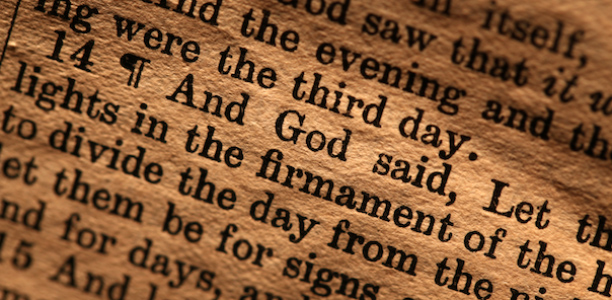By David Faust
 The prophet Elijah rode a spiritual roller coaster of highs and lows. In a short period of time he literally went from a mountaintop to the valley of depletion and discouragement.
The prophet Elijah rode a spiritual roller coaster of highs and lows. In a short period of time he literally went from a mountaintop to the valley of depletion and discouragement.
On Mount Carmel he was a champion. In the desert he felt like a chump. On the mountain he felt vindicated. In the desert he felt isolated and forsaken. On the mountain he prayed and God sent fire from the sky. In the desert he prayed to die. On the mountain God validated Elijah’s ministry and unmasked the prophets of Baal as frauds. In the desert Elijah felt despondent, for it appeared God’s enemies were going to win after all.
Afraid and alone, Elijah “went a day’s journey into the wilderness. He came to a broom bush, sat down under it and prayed that he might die. ‘I have had enough, Lord,’ he said. ‘Take my life; I am no better than my ancestors.’ Then he lay down under the bush and fell asleep” (1 Kings 19:4, 5).
There in the valley God sent an angel to refresh him with food, water, and rest. Later the Lord gave Elijah special signs: a strong wind, an earthquake, a fire, and a gentle whisper. Even then, when the Lord asked, “What are you doing here, Elijah?” the weary prophet could only muster up a response that sounds lonely and self-righteous. “He replied, ‘I have been very zealous for the Lord God Almighty. The Israelites have rejected your covenant, torn down your altars, and put your prophets to death with the sword. I am the only one left, and now they are trying to kill me too” (vv. 9-14).
The Crippling Effects of Self-Pity
Can you relate to Elijah? Self-pity pokes holes in our spiritual fuel tanks. It drains energy from our souls. Do you ever lose hope for our nation? Do you ever feel like you’re the only one left who still cares about God? Do you feel like your sacrifices make no difference?
Self-pity comes in many forms. A teenager wonders, “Am I the only virgin left in my school?” An aging widow feels sorry for herself when no one visits or calls. The faithful minister of a small, inner-city church wonders why no one notices or cares about his little flock. The leader of a megachurch wonders if anyone understands the pressure he faces. A young soldier says goodbye to his wife and kids, boards a plane for the Middle East, and wonders if anyone appreciates his sacrifice. An emergency room nurse sighs wearily when she looks at the waiting room full of patients awaiting examination.
Who wouldn’t feel sorry for themselves in such situations?
Important Work to Do
It’s understandable why Elijah worried about the moral breakdown of his society and complained, “I am the only one left.” But even when Elijah felt dejected, the Lord had important work for him to do. There were kings and prophets to anoint (vv. 15, 16). There was truth to be proclaimed. And there were many others who shared Elijah’s faithful frustration—the Lord still had 7,000 people in Israel whose knees hadn’t bowed to Baal and whose mouths hadn’t kissed him (v. 18). Elijah was the only one left—only if you didn’t count those 7,000 others!
When self-pity starts to drain away your zest for life and your zeal for God, remember: God hasn’t left. When the Lord is present, you are not alone.
David Faust serves as the Associate Minister at East 91st Street Christian Church in Indianapolis, Indiana.
The Lookout’s Bible Reading Plan for June 14, 2015
Use this guide to read through the Bible in 12 months. Follow David Faust’s comments on the highlighted text in every issue of The Lookout.
Luke 3:1-20
Ephesians 4:25-32
Psalm 119:65-72
1 Kings 13, 14
Luke 3:21-38
Ephesians 5:1-21
Psalm 119:73-80
1 Kings 15, 16
Luke 4:1-12
Ephesians 5:22-33
Psalm 119:81-88
1 Kings 17, 18
Luke 4:13-30
Ephesians 6:1-9
Psalm 119:89-96
1 Kings 19, 20
Luke 4:31-37
Ephesians 6:10-24
Psalm 119:97-104
1 Kings 21, 22
Luke 4:38-44
Philippians 1:1-11
Psalm 119:105-112
2 Kings 1–3



Comments: no replies